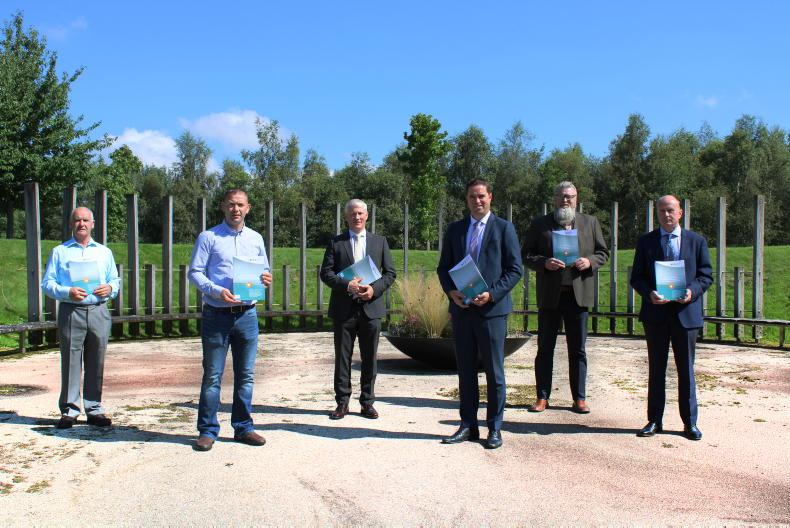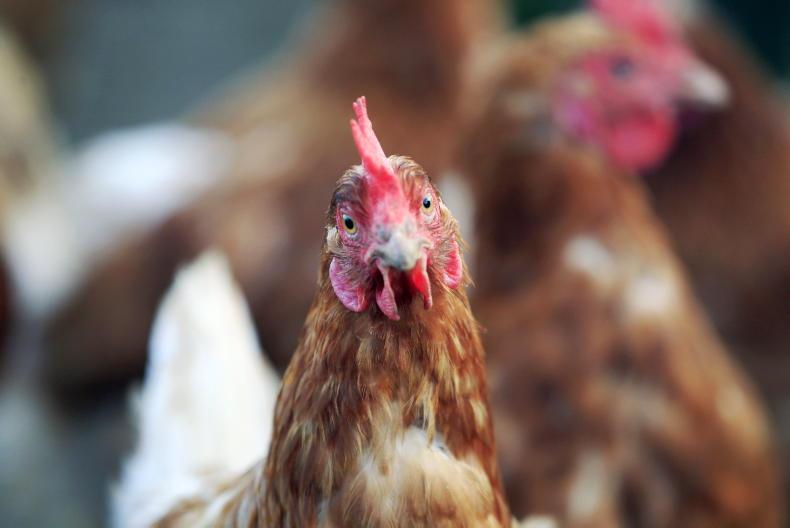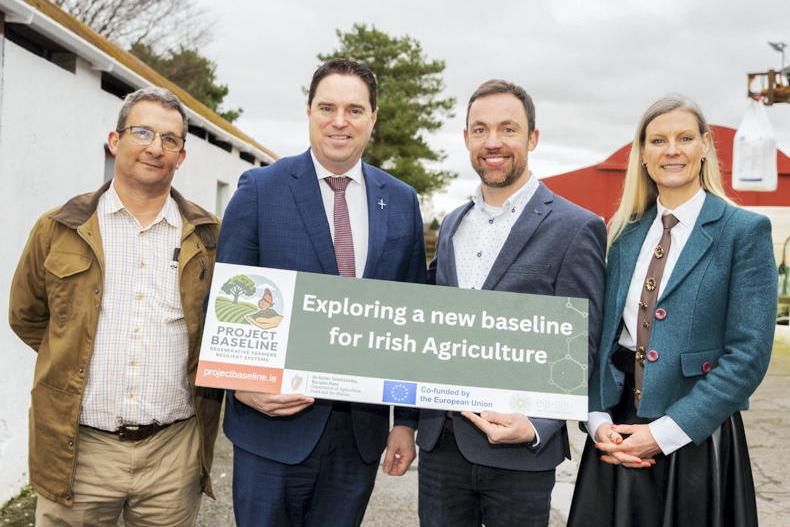A new code of good practice for responsible use of antimicrobials on poultry farms has been launched by the Department of Agriculture.
Antimicrobial resistance (AMR) is the resistance of a microorganism to a drug that was originally effective for treatment of infections caused by that microorganism.
Launching the code, Minister for Agriculture Charlie McConalogue said: “The practical strategies outlined in this code of practice will serve as a useful reference point for poultry farmers as they work with their veterinary practitioner to reduce their overall use of antibiotics and to improve their flock health.
“Actions taken by the poultry sector to improve animal health, and prevent disease, are key to reducing the use of antibiotics, and effectively tackling AMR.

Andrew Boylan, IFA poultry chair, Ivan Deane, Shannonvale, Fergal Morris, general manager at MSD, Minister Heydon, Diarmaid Kirby, Western Brand and Tom Horan Manor Farm. / DAFM
“The principles and actions contained in this code align well with a number of Government policies including Ireland’s national biosecurity strategy, Ireland’s animal welfare strategy and Ireland’s national farmed animal health strategy, with one of its key enabling principles being ‘prevention is better than cure’.
“Implementing disease prevention and farm management practices as outlined in this document will support the poultry industry as they work to reduce the need for these medicines, and effectively tackle AMR,” he insisted.
Minister of State at the Department of Agriculture Martin Heydon stated: “These guidelines will support Irish poultry farmers to achieve the highest international standards of flock health and welfare, and in doing so improve the productivity and profitability.
“The Irish poultry industry is important economically and supports 6,000 jobs, with many of these in rural areas,” he added.
A new code of good practice for responsible use of antimicrobials on poultry farms has been launched by the Department of Agriculture.
Antimicrobial resistance (AMR) is the resistance of a microorganism to a drug that was originally effective for treatment of infections caused by that microorganism.
Launching the code, Minister for Agriculture Charlie McConalogue said: “The practical strategies outlined in this code of practice will serve as a useful reference point for poultry farmers as they work with their veterinary practitioner to reduce their overall use of antibiotics and to improve their flock health.
“Actions taken by the poultry sector to improve animal health, and prevent disease, are key to reducing the use of antibiotics, and effectively tackling AMR.

Andrew Boylan, IFA poultry chair, Ivan Deane, Shannonvale, Fergal Morris, general manager at MSD, Minister Heydon, Diarmaid Kirby, Western Brand and Tom Horan Manor Farm. / DAFM
“The principles and actions contained in this code align well with a number of Government policies including Ireland’s national biosecurity strategy, Ireland’s animal welfare strategy and Ireland’s national farmed animal health strategy, with one of its key enabling principles being ‘prevention is better than cure’.
“Implementing disease prevention and farm management practices as outlined in this document will support the poultry industry as they work to reduce the need for these medicines, and effectively tackle AMR,” he insisted.
Minister of State at the Department of Agriculture Martin Heydon stated: “These guidelines will support Irish poultry farmers to achieve the highest international standards of flock health and welfare, and in doing so improve the productivity and profitability.
“The Irish poultry industry is important economically and supports 6,000 jobs, with many of these in rural areas,” he added.










SHARING OPTIONS